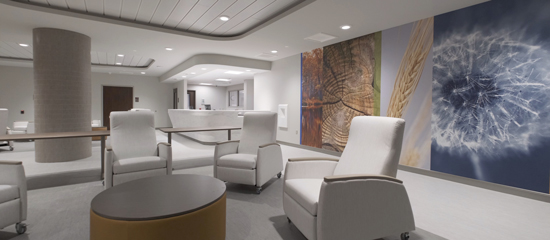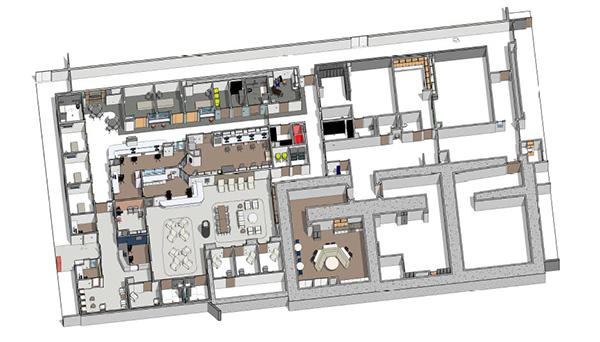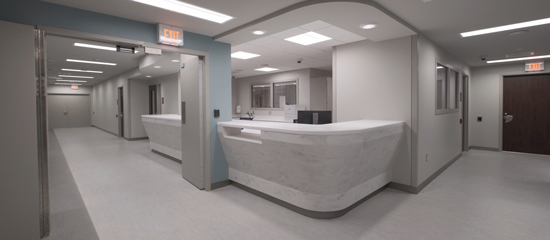
One in every eight visits to an emergency department in the United States involves a patient with psychiatric or substance use issues. Many of these patients wait hours or even days for transfer to inpatient psychiatric facilities. And this problem is only getting worse.
"We’ve seen a huge increase in mental health and substance use visits to our emergency department over the past four years," says Howard Liu, MD, board certified psychiatrist with Nebraska Medicine and chair of the UNMC Department of Psychiatry. "From 2015 to 2019, we saw nearly an 80% increase in people with a psychiatric crisis coming to our emergency department and had more than 3,000 visits for this reason last year alone."
It’s for this very reason Nebraska Medicine opened a new Adult Psychiatric Emergency Services (PES) unit. The facility is located on the ground floor of Clarkson Tower at Nebraska Medical Center.
"The time is right to provide this service to our community," says Dr. Liu. "Adult Psychiatric Emergency Services provides immediate care by licensed mental health providers in a safe setting. It won’t be the final destination for a loved one in crisis, but a safe and caring place to assess their needs, start treatment and then transfer them to an appropriate level of care."

The unit features a calm, compassionate environment away from the main Emergency Department. The goal: to stabilize patients and swiftly refer them to community partners for appropriate treatment while avoiding unnecessary inpatient admissions.
Patients could be transferred to a number of settings: inpatient care, partial hospitalization, intensive outpatient services or ambulatory care. Psychiatrists, advanced practice professionals, psychiatric nurses, social workers and patient care technicians staff the unit. Mental health patient advocates, known as peer professionals, have been engaged in the design of the unit and are available to patients eight hours per day to maximize dignity and respect for patients and families.
"Nationwide, these units have demonstrated the ability to lower inpatient admission rates. We know not all patients benefit from a hospital stay. It’s often better for patients who aren’t dangerous to themselves or others to continue their care with community-based providers," says David Cates, PhD, director of Nebraska Medicine Behavioral Health. "In addition, due to our close working relationship with and proximity to the Emergency Department, we will be able to manage patients with complex medical needs, such as substance use withdrawal, medical clearance after a suicide attempt or serious mental illness in combination with a coexisting medical diagnosis."

Adult Psychiatric Emergency Services consists of four interview/triage rooms where patients will have a trauma-informed mental health assessment performed. Low-risk patients may receive crisis intervention and then be released.
The unit contains an open observation area with a capacity for 12 moderate-risk patients. These could be patients with suicidal thoughts, manic symptoms from bipolar disorder or substance use withdrawal who aren’t in danger of hurting themselves or others. Patients in this area could receive treatment such as crisis intervention, motivational interviewing, safety planning and discharge planning.
Finally, the unit features a "secure care area" consisting of six private rooms. These rooms are dedicated for patients requiring specialized care while reducing the potential for harm to themselves or others.
Adult Psychiatric Emergency Services accepts all patients with mental health needs regardless of insurance, history of admissions or a history of violence. It is primarily designed for adults but accommodates children and teenagers as needed. Care is provided to all patients regardless of how patients arrived. Patients with an acute medical issue will be treated in the medical Emergency Department and then transferred to the PES when stabilized.
"Establishing this unit will propel Nebraska Medicine into a circle of national leaders,” says James Linder, MD, CEO of Nebraska Medicine. "Using the best evidence available and putting it to use in a model that works will allow us to provide the highest standard of emergency psychiatric care and fill an important complementary need in the community."

